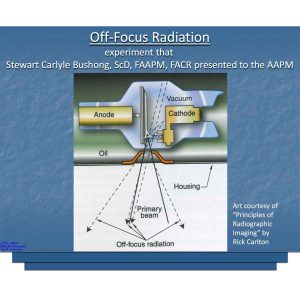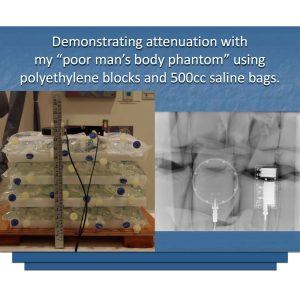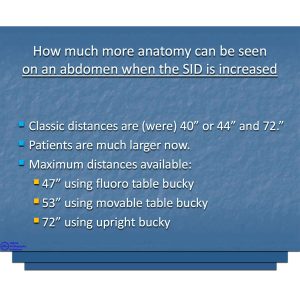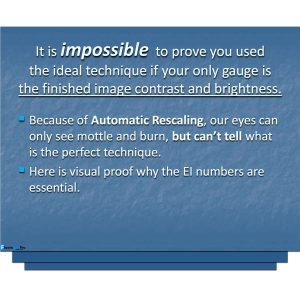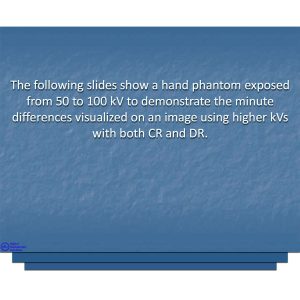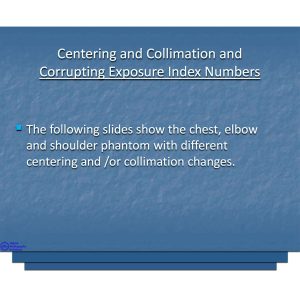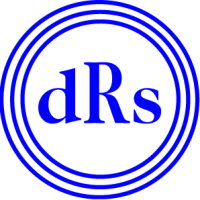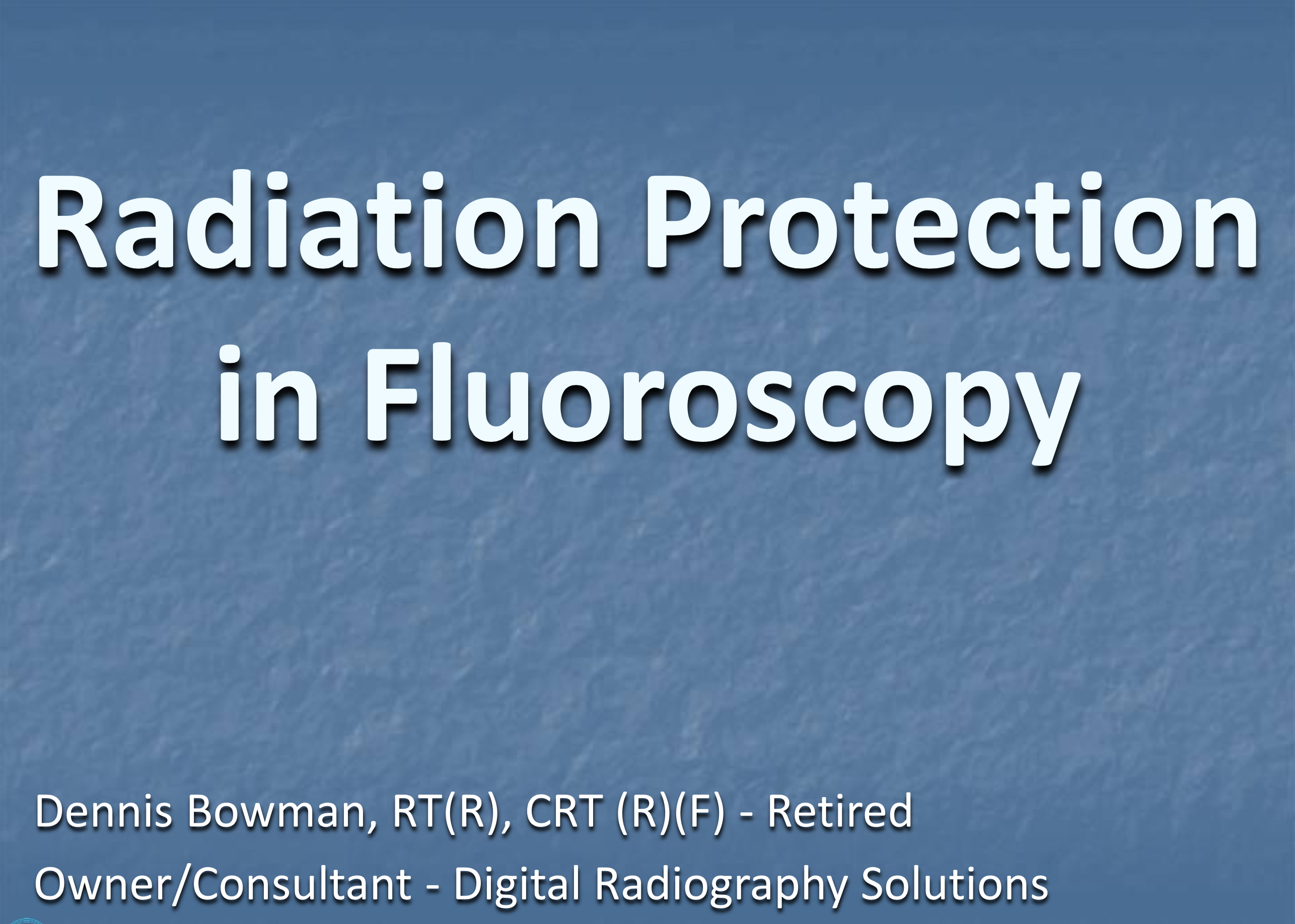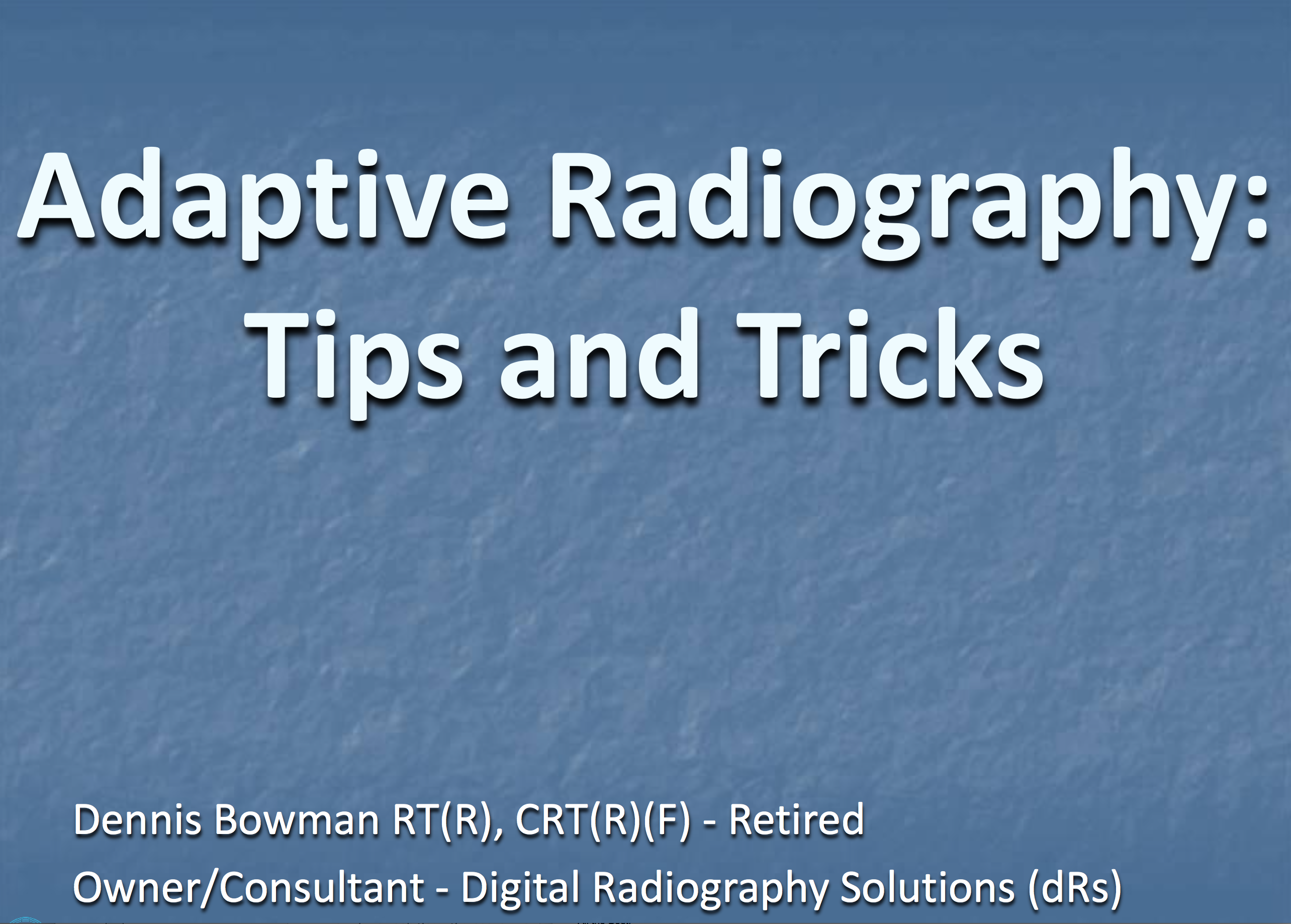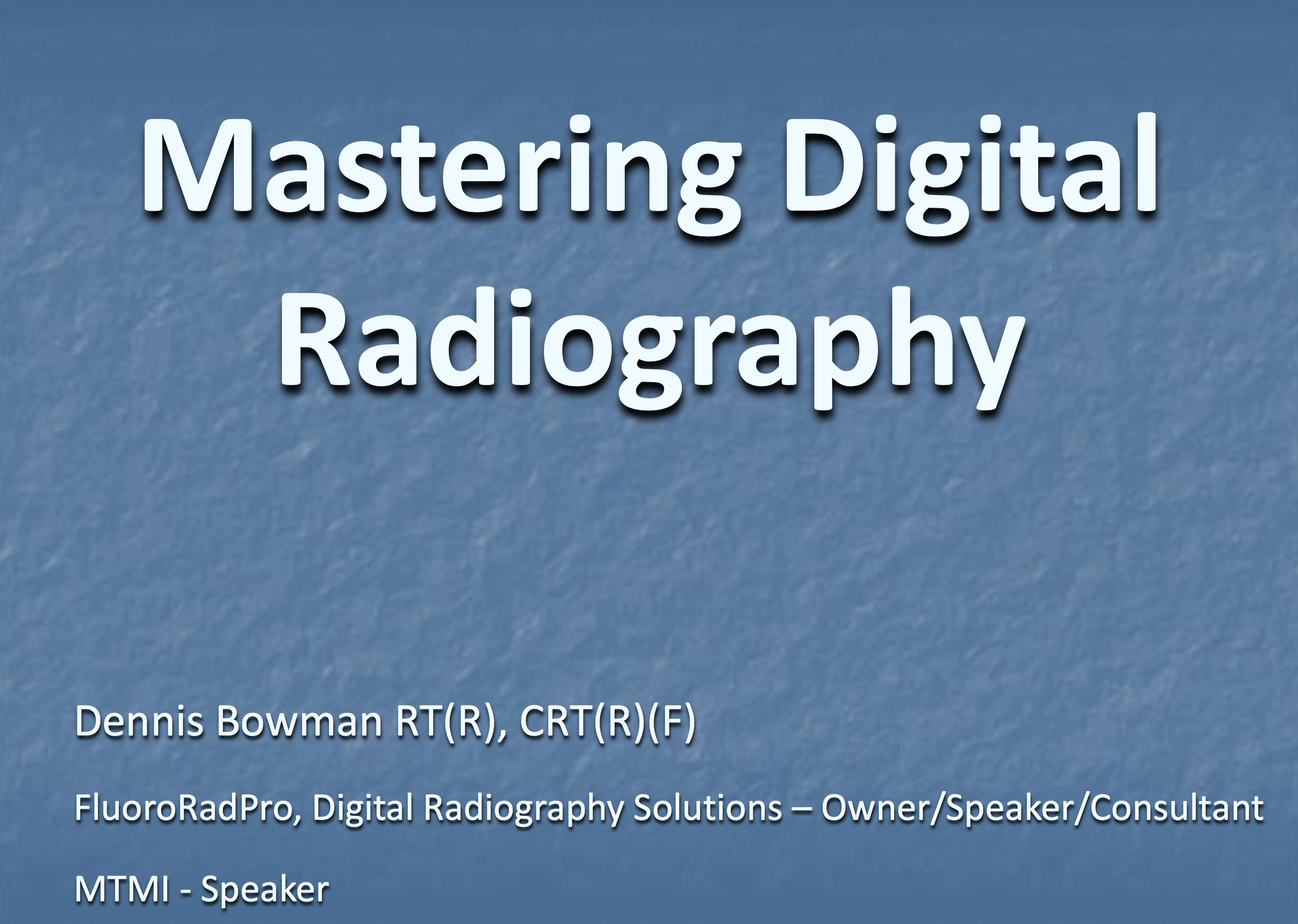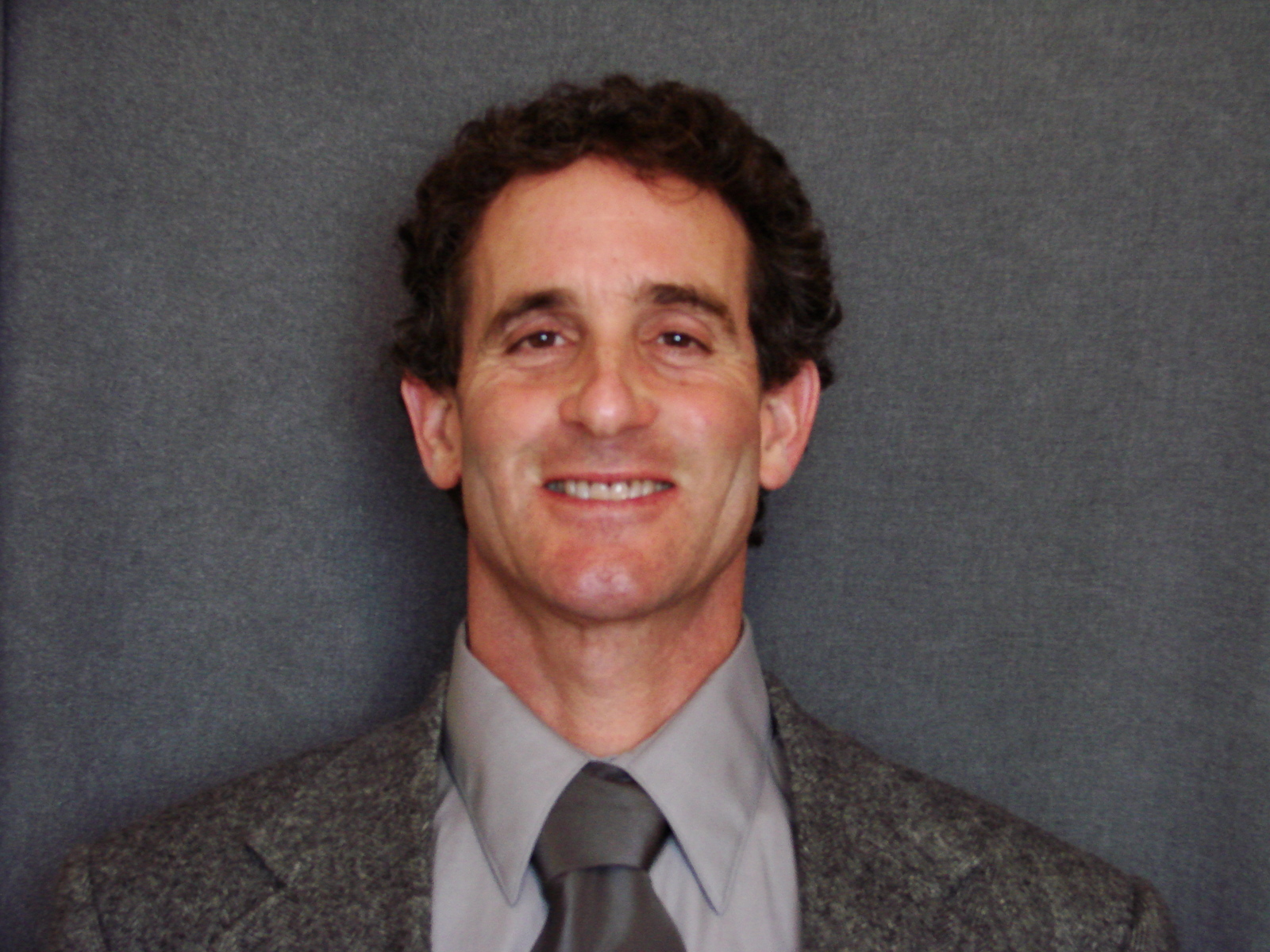
Dennis M. Bowman
Certifications:
ARRT # 141422
CRT # RHF 21480
Fluoro # RHF 21480
Driven to provide
accurate information
to
I graduated from Foothill College with my Associate of Science degree in 1977. I then worked as a radiographer for 40+ years except for some great extended travel trips.
I spent much of my career (28 years) as a radiographer at Community Hospital of the Monterey Peninsula (CHOMP) in Monterey, CA. For 25 of those years, I was lucky enough to be the Clinical Instructor (CI) for the radiography students, which made it my dream job.
We went digital in 2003, and got $25,000 worth of phantoms and a Fluke dosimeter in 2005. After that I was able to put in hundreds of hours experimenting and, with LOTS of help, figured out high kV, low mAs – low dose CR and DR techniques, which made my job a double dream!!
During that time, I created two small businesses; Digital Radiography Solutions (dRs) and FluoroRadPro (FRP), the second one with my partner Leslie Stiff-Martin. I also became a professional speaker on digital radiography in 2006, where I was lucky enough to speak all over the US and internationally.
In May of 2013, I was lucky enough to co-author a textbook with Quinn Carroll, titled “Adaptive Radiography with Trauma, Image Critique and Critical Thinking”.
In February, 2015 my CR and DR technique charts were published in the 13th Edition of “Merrill’s Atlas of Radiographic Positioning & Procedures”.
I retired in 2020, and still give live talks around the country, and Webinars for MTMI. I recreated this website again to make sure the DR and CR digital technique charts, experiments and demonstrations, and peer reviews, could always be available for free.
What to Expect?
The first few days:
Within 1-3 months:
Within 6 weeks:
Within 3-6 months:
In 6 months:
Technique Charts
The fundamental premise I teach is to get everyone to use the highest kV and lowest mAs possible, thereby creating the lowest dose to the patient. So the first chart you will see has the optimum kV that can be used in digital radiography for both CR and DR. This is true for every vendor except Konica who built their CR system to use 5-10 kV less than everyone else. This means that Konica uses 5-10 kV higher than film-screen and all other vendors use 15-20 kV more than film screen.
Following that are all of the Universal Technique Charts we’ve created for both CR and DR Facilities. As you will notice, the CR charts have a certain LgM number at the top of each chart. LgM is Agfa’s Exposure Index (EI) acronym. You should contact us if you are not familiar with Agfa’s CR LgM system so we can explain how this system is similar to yours.
There are two sets of DR techniques charts. We have one for Cesium and another for Gadolinium. As they use noticeably different amounts of mAs for each, it was necessary to create both of these charts. Please contact us if you are not certain which type of DR detector you are using at your facility.
We have also included a special set of charts that compare one vendor’s EI number to the other. These are for CR systems and the charts are titled “CR EI Comparisons Parts 1 and 2”.
Digital Optimum kVp Dose Charts 40”SID
Digital Optimum kVp Dose Charts 72”SID
DR Least mAs (page 1 | page 2)
DR 33% More mAs (page 1 | page 2)
DR 66% More mAs (page 1 | page 2)
DR 100% More mAs (page 1 | page 2)
X-Large & 2X-Large DR Least mAs
3X-Large & 4X-Large DR Least mAs
X-Large & 2X-Large DR 33% More mAs
3X-Large & 4X-Large DR 33% More mAs
X-Large & 2X-Large DR 66% More mAs
3X-Large & 4X-Large DR 66% More mAs
CR Least mAs (page 1 | page 2)
CR 33% More mAs (page 1 | page 2)
CR 66% More mAs (page 1 | page 2)
CR 100% More mAs (page 1 | page 2)
X-Large & 2X-Large CR Least mAs
3X-Large & 4X-Large CR Least mAs
X-Large & 2X-Large CR 33% More mAs
3X-Large & 4X-Large CR 33% More mAs
X-Large & 2X-Large CR 66% More mAs
3X-Large & 4X-Large CR 66% More mAs
X-Large & 2X-Large CR 100% More mAs
Important Notice
All of the CR and DR Universal Technique Charts were created using a High Frequency generator. Almost all hospitals and large clinics have this generator. If you do not have one, your techniques will need more mAs.
Peer Reviews
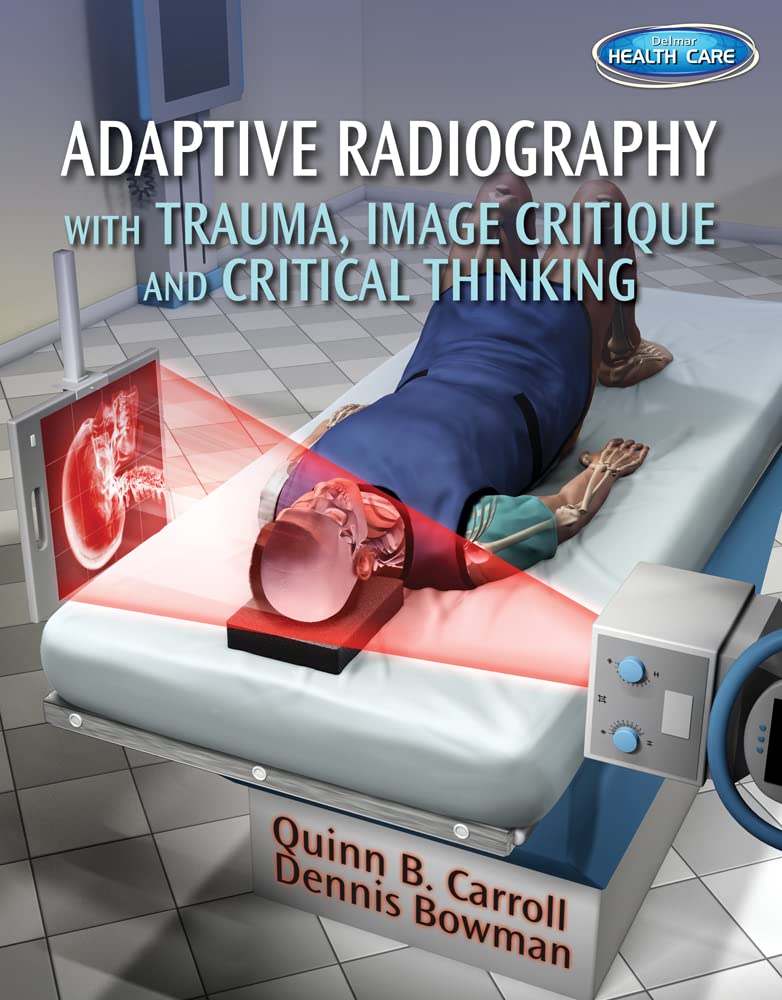
ADAPTIVE RADIOGRAPHY WITH TRAUMA, IMAGE CRITIQUE, AND CRITICAL THINKING, 1st Edition
Textbook
ADAPTIVE RADIOGRAPHY WITH TRAUMA, IMAGE CRITIQUE, AND CRITICAL THINKING, 1st Edition gives you a fresh perspective on radiographic positioning and critiquing in the real world. Unlike most radiography books, which approach topics in terms of the average patient under near ideal conditions, this text offers strategies and helpful tricks of the trade to employ when the usual does not apply. Based on developing adaptive thinking skills, the book shows you how to consider the paradigms and rules of radiology, examining and quantifying those that work while challenging those that don’t. Thorough discussions on adapting beam angles, beam divergence, expansion of the light field, and spacial relations in positioning deliver the foundations of radiography and introduce quantifiable, repeatable methods.
ADAPTIVE RADIOGRAPHY WITH TRAUMA, IMAGE CRITIQUE, AND CRITICAL THINKING, 1st Edition also addresses trauma and mobile radiography and positioning, changes brought about by the advent of digital radiography, routine and trauma skull positioning, and much more. Real-life case studies and critical thinking questions help you apply methods to a variety of issues and clinical settings, developing the problem-solving skills you need for success in any radiographic field.
Fill out the form here with any questions you may have.
Send us a message
Fill out the form below to send us a message.




